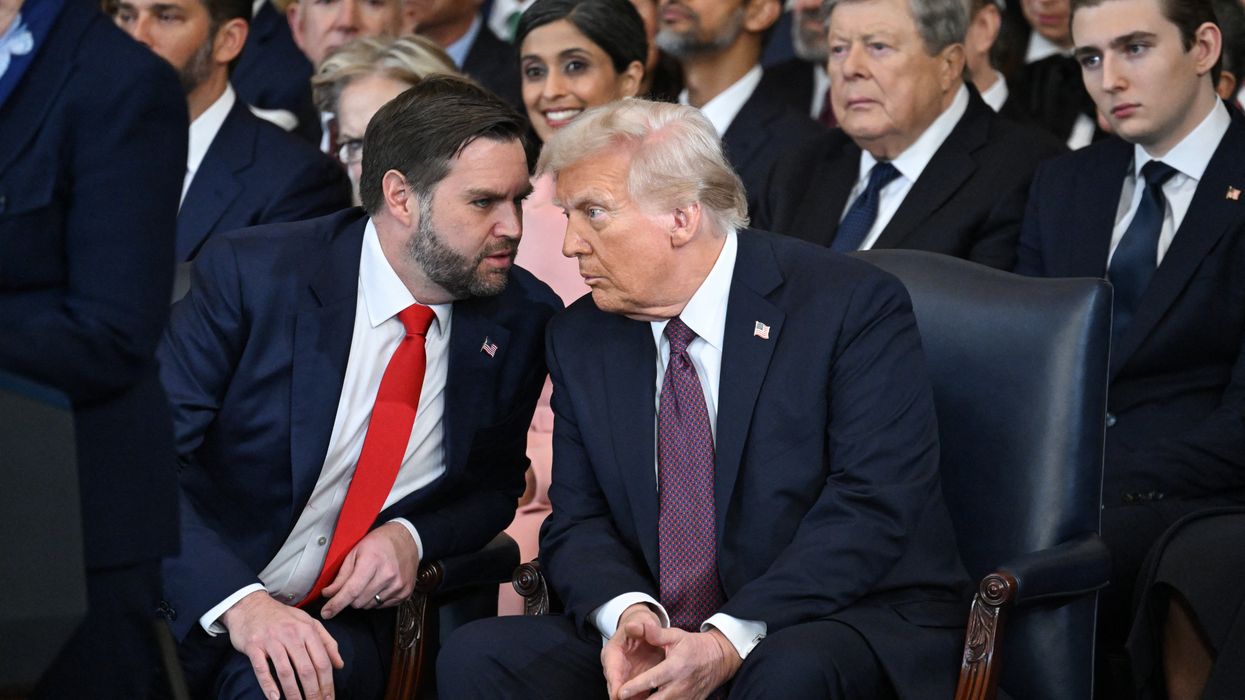President Donald Trump, Vice President JD Vance, Department of Government Efficiency (DOGE) head Elon Musk, and White House Press Secretary Karoline Leavitt are claiming that federal courts have no business blocking Trump's executive orders. Doing so, they argue, is an attack on the powers that the federal government's executive branch enjoys under the U.S. Constitution.
Musk is even calling for federal judges to be impeached by Congress if they interfere with Trump's agenda. And Vance, in a February 9 post on the Musk-owned X.com (formerly Twitter), posted, "If a judge tried to tell a general how to conduct a military operation, that would be illegal. If a judge tried to command the attorney general in how to use her discretion as a prosecutor, that's also illegal. Judges aren't allowed to control the executive's legitimate power."
But Trump's critics — a combination of Democrats, legal scholars and Never Trump conservatives— are countering that in fact, the U.S. Constitution doesn't give the executive branch nearly as much power as he is claiming. The Constitution, according to those critics, provides a system of checks and balances that gives the government's judicial and legislative branches every right to push back against a sitting president.
READ MORE: MAGA's 'chaotic attempt to shut down' USAID put $500 million of food supplies at risk — and more
The New York Times' Mattathias Schwartz, in an article published on February 15, examines a "radical" far-right legal theory that, critics say, greatly exaggerates the amount of power the government's executive branch enjoys under the U.S. Constitution.
"Federal judges have issued preliminary orders that block some of the (Trump) Administration's most aggressive assertions of power: a freeze on as much as $3 trillion in federal spending, the termination of the 14th Amendment's guarantee to birthright citizenship, the firing of civil servants before the end of their statutorily defined terms, the forced transfer of trans women in prison to men's facilities and the turnover of sensitive data and systems to a newly minted quasi-agency headed by Elon Musk," Schwartz explains. "More than 60 lawsuits have been filed against the second Trump Administration — more than two for each day that the president has been in office. Many of the plaintiffs allege that the Trump Administration's actions are ultra vires, literally 'beyond the powers,' meaning that Mr. Trump has wielded power in ways that go beyond his lawful authority."
If the second Trump Administration decides that it is "the constitutionally designated arbiter of the limits on its own authorities" and decides to "ignore judicial rulings," Schwartz warns, it "would represent an extreme rupture to the constitutional order."
The New York Times reporter notes, "Mr. Vance is among an increasing number of elected Republicans who are influenced by new strains of conservative legal thought that entail a radical reinterpretation of the Constitution, particularly the powers it bestows on the president…. A group of right-wing thinkers is putting forward a new set of doctrines: Call it 'post-originalism.'"
READ MORE: 'Corruption in plain sight': MTG buried for buying Tesla stock as DOGE committee chair
"Post-originalism," according to Schwartz, envisions an extremely powerful executive branch and is decidedly more "radical" than traditional conservative legal ideas.
"It is hard to find much precedent for this moment," Schwartz explains. "President Nixon's behavior caused grave tensions between the three branches of government, but the buildup was protracted and gradual. Presidents Jackson and Lincoln both ignored important court rulings, according to the Federal Judicial Center. But those prior instances of presidential recalcitrance — just two, spread out over 248 years — were narrow. Mr. Vance hints at something very different: wholesale ultra vires executive-branch impunity. That idea is increasingly part of the Republican mainstream."
READ MORE: DC insider warns: Trump’s 'big ego' and foreign policy blunders put US in 'very dangerous position'
Read Mattathias Schwartz's full New York Times article at this link (subscription required).


